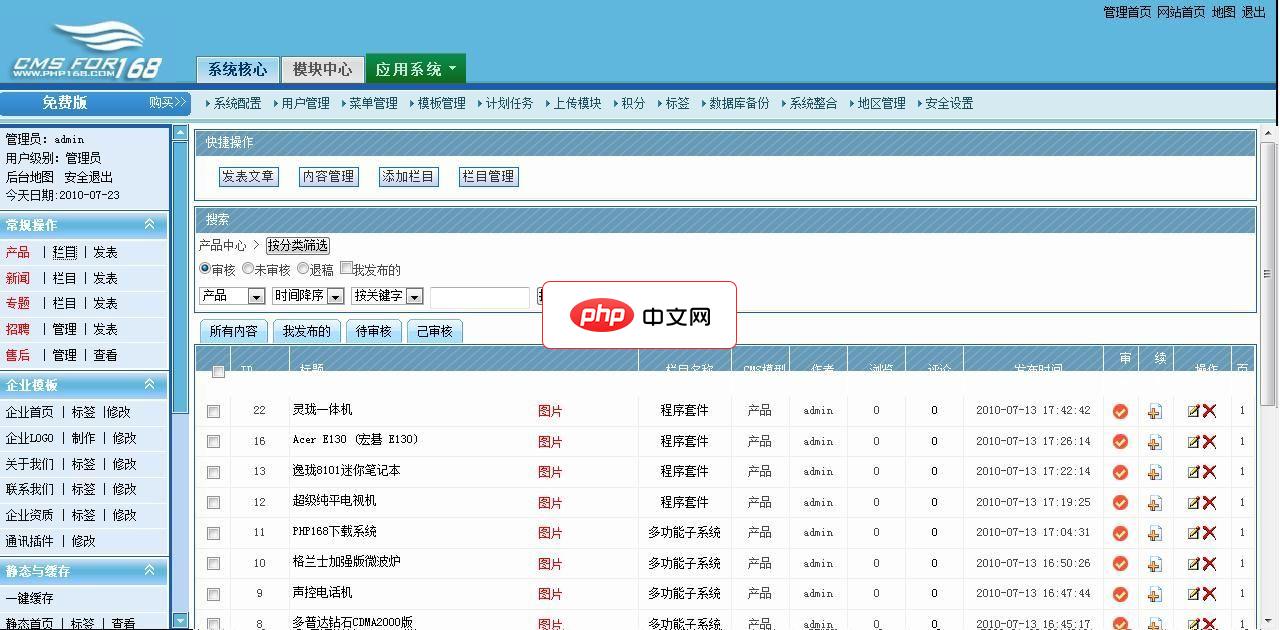
构建企业级人工智能代理需要仔细考虑组件设计、系统架构和工程实践。本文探讨了构建健壮且可扩展的代理系统的关键组件和最佳实践。
from typing import protocol, dict
from jinja2 import template
class prompttemplate(protocol):
def render(self, **kwargs) -> str:
pass
class jinjaprompttemplate:
def __init__(self, template_string: str):
self.template = template(template_string)
def render(self, **kwargs) -> str:
return self.template.render(**kwargs)
class promptlibrary:
def __init__(self):
self.templates: dict[str, prompttemplate] = {}
def register_template(self, name: str, template: prompttemplate):
self.templates[name] = template
def get_template(self, name: str) -> prompttemplate:
return self.templates[name]
class promptversion:
def __init__(self, version: str, template: str, metadata: dict):
self.version = version
self.template = template
self.metadata = metadata
self.test_cases = []
def add_test_case(self, inputs: dict, expected_output: str):
self.test_cases.append((inputs, expected_output))
def validate(self) -> bool:
template = jinjaprompttemplate(self.template)
for inputs, expected in self.test_cases:
result = template.render(**inputs)
if not self._validate_output(result, expected):
return false
return true
from typing import any, list
from datetime import datetime
class memoryentry:
def __init__(self, content: any, importance: float):
self.content = content
self.importance = importance
self.timestamp = datetime.now()
self.access_count = 0
class memorylayer:
def __init__(self, capacity: int):
self.capacity = capacity
self.memories: list[memoryentry] = []
def add(self, entry: memoryentry):
if len(self.memories) >= self.capacity:
self._evict()
self.memories.append(entry)
def _evict(self):
# implement memory eviction strategy
self.memories.sort(key=lambda x: x.importance * x.access_count)
self.memories.pop(0)
class hierarchicalmemory:
def __init__(self):
self.working_memory = memorylayer(capacity=5)
self.short_term = memorylayer(capacity=50)
self.long_term = memorylayer(capacity=1000)
def store(self, content: any, importance: float):
entry = memoryentry(content, importance)
if importance > 0.8:
self.working_memory.add(entry)
elif importance > 0.5:
self.short_term.add(entry)
else:
self.long_term.add(entry)
from typing import list, tuple
import numpy as np
from sklearn.metrics.pairwise import cosine_similarity
class memoryindex:
def __init__(self, embedding_model):
self.embedding_model = embedding_model
self.embeddings = []
self.memories = []
def add(self, memory: memoryentry):
embedding = self.embedding_model.embed(memory.content)
self.embeddings.append(embedding)
self.memories.append(memory)
def search(self, query: str, k: int = 5) -> list[tuple[memoryentry, float]]:
query_embedding = self.embedding_model.embed(query)
similarities = cosine_similarity(
[query_embedding],
self.embeddings
)[0]
top_k_indices = np.argsort(similarities)[-k:]
return [
(self.memories[i], similarities[i])
for i in top_k_indices
]
from typing import list, optional
from dataclasses import dataclass
import uuid
@dataclass
class thoughtnode:
content: str
confidence: float
supporting_evidence: list[str]
class reasoningchain:
def __init__(self):
self.chain_id = str(uuid.uuid4())
self.nodes: list[thoughtnode] = []
self.metadata = {}
def add_thought(self, thought: thoughtnode):
self.nodes.append(thought)
def get_path(self) -> list[str]:
return [node.content for node in self.nodes]
def get_confidence(self) -> float:
if not self.nodes:
return 0.0
return sum(n.confidence for n in self.nodes) / len(self.nodes)
import logging
from opentelemetry import trace
from prometheus_client import histogram
reasoning_time = histogram(
'reasoning_chain_duration_seconds',
'time spent in reasoning chain'
)
class chainmonitor:
def __init__(self):
self.tracer = trace.get_tracer(__name__)
def monitor_chain(self, chain: reasoningchain):
with self.tracer.start_as_current_span("reasoning_chain") as span:
span.set_attribute("chain_id", chain.chain_id)
with reasoning_time.time():
for node in chain.nodes:
with self.tracer.start_span("thought") as thought_span:
thought_span.set_attribute(
"confidence",
node.confidence
)
logging.info(
f"thought: {node.content} "
f"(confidence: {node.confidence})"
)
from abc import abc, abstractmethod
from typing import generic, typevar
t = typevar('t')
class component(abc, generic[t]):
@abstractmethod
def process(self, input_data: t) -> t:
pass
class pipeline:
def __init__(self):
self.components: list[component] = []
def add_component(self, component: component):
self.components.append(component)
def process(self, input_data: any) -> any:
result = input_data
for component in self.components:
result = component.process(result)
return result
class componentregistry:
_instance = none
def __new__(cls):
if cls._instance is none:
cls._instance = super().__new__(cls)
cls._instance.components = {}
return cls._instance
def register(self, name: str, component: component):
self.components[name] = component
def get(self, name: str) -> optional[component]:
return self.components.get(name)
def create_pipeline(self, component_names: list[str]) -> pipeline:
pipeline = pipeline()
for name in component_names:
component = self.get(name)
if component:
pipeline.add_component(component)
return pipeline
from dataclasses import dataclass
from typing import dict
import time
@dataclass
class performancemetrics:
latency: float
memory_usage: float
token_count: int
success_rate: float
class performancemonitor:
def __init__(self):
self.metrics: dict[str, list[performancemetrics]] = {}
def record_operation(
self,
operation_name: str,
metrics: performancemetrics
):
if operation_name not in self.metrics:
self.metrics[operation_name] = []
self.metrics[operation_name].append(metrics)
def get_average_metrics(
self,
operation_name: str
) -> optional[performancemetrics]:
if operation_name not in self.metrics:
return none
metrics_list = self.metrics[operation_name]
return performancemetrics(
latency=sum(m.latency for m in metrics_list) / len(metrics_list),
memory_usage=sum(m.memory_usage for m in metrics_list) / len(metrics_list),
token_count=sum(m.token_count for m in metrics_list) / len(metrics_list),
success_rate=sum(m.success_rate for m in metrics_list) / len(metrics_list)
)
class PerformanceOptimizer:
def __init__(self, monitor: PerformanceMonitor):
self.monitor = monitor
self.thresholds = {
'latency': 1.0, # seconds
'memory_usage': 512, # MB
'token_count': 1000,
'success_rate': 0.95
}
def analyze_performance(self, operation_name: str) -> List[str]:
metrics = self.monitor.get_average_metrics(operation_name)
if not metrics:
return []
recommendations = []
if metrics.latency > self.thresholds['latency']:
recommendations.append(
"Consider implementing caching or parallel processing"
)
if metrics.memory_usage > self.thresholds['memory_usage']:
recommendations.append(
"Optimize memory usage through batch processing"
)
if metrics.token_count > self.thresholds['token_count']:
recommendations.append(
"Implement prompt optimization to reduce token usage"
)
if metrics.success_rate < self.thresholds['success_rate']:
recommendations.append(
"Review error handling and implement retry mechanisms"
)
return recommendations
构建企业级agent系统需要仔细注意:

国微CMS企业方案基于“核心+系统+模块+插件”的架构体系,拓展性良好。能非常方便站长及企业搭建企业信息平台。 手机短信体系平台A、 每个售后问题回复,客户均可收到快捷通知短信。B、 每个货物发送,均有一个快捷短信息发给收货方。C、 每个客户均可按实际需求收到手机短信回复与问候。D、每个订单申请都会有一个快捷短信回复。E、每个代理商申请代理均可得到短信回复。
 0
0

以上就是构建企业代理系统:核心组件设计与优化的详细内容,更多请关注php中文网其它相关文章!

每个人都需要一台速度更快、更稳定的 PC。随着时间的推移,垃圾文件、旧注册表数据和不必要的后台进程会占用资源并降低性能。幸运的是,许多工具可以让 Windows 保持平稳运行。

Copyright 2014-2025 https://www.php.cn/ All Rights Reserved | php.cn | 湘ICP备2023035733号